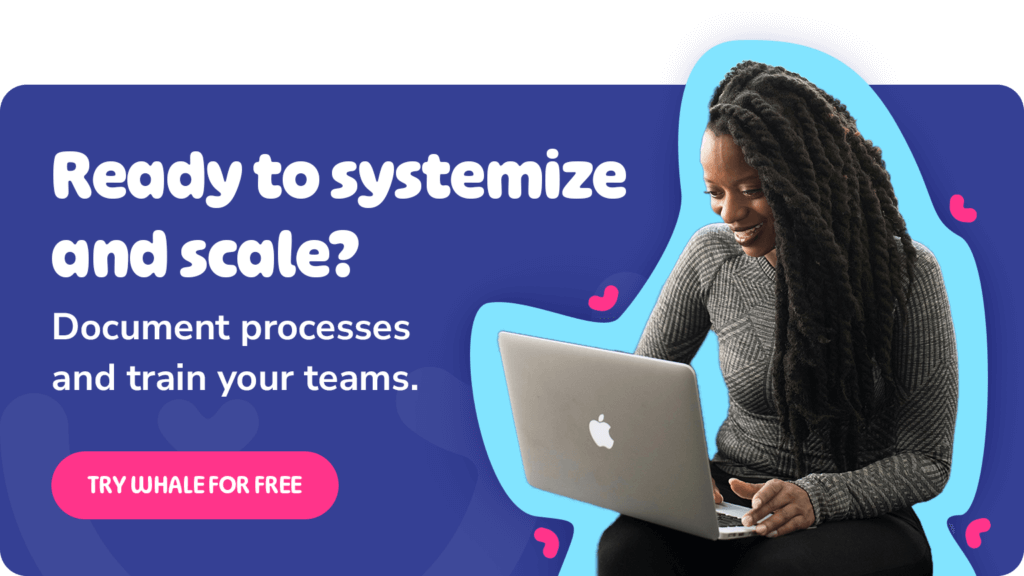In this high-stakes environment, AI in HR isn’t just a luxury; it’s a necessity. But what exactly does AI in HR involve, why is it essential, and how can you choose the right HR automation software for your company?
Let’s cut through the noise and explore how AI and automation for HR can transform your workforce.
Are AI in HR and automation for HR the same?
Automation and AI in HR are related, which is why many people use them interchangeably.
AI in HR
AI in HR involves using artificial intelligence technologies to enhance various HR automated solutions. This can include machine learning, natural language processing, and other AI techniques.
Applications of AI in HR
AI can be used for talent acquisition (e.g., resume screening, chatbots for candidate engagement), employee engagement (e.g., sentiment analysis), predictive analytics (e.g., predicting turnover), and more.
AI in HR is even revolutionizing interview processes, enabling more efficient evaluation and selection of candidates. Incorporating an advanced AI interview tool can streamline candidate assessment and make recruiting more effective.
HR Automation
HR automation (or HR automated solutions) refers to the use of technology to improve routine HR tasks and automation of HR processes. This includes software and systems designed to streamline and manage HR functions.
Applications of Automation in HR
HR automation best practices include delegating tasks like payroll processing, benefits administration, time tracking, and compliance management.
AI in HR encompasses a range of advanced technologies and analytical tools, while HR automation focuses specifically on automating routine processes.
Now that this has been established for the purposes of this article, let’s answer some burning questions.
What is automation for HR?
Before discussing automation for HR, let’s lay out the various roles of HR we consider most affected by AI in HR.
HR managers and HR personnel are required to take care of:
- Benefits
- Recruitment
- Payroll processing
- Employee development
- Performance management
- Employee onboarding and training
- Employee engagement and experience
Automation for HR involves using software to automate repetitive and time-consuming tasks involved in the above functions. The primary goal is to enhance efficiency, reduce errors, and free up HR professionals to focus on more strategic activities.
Why do companies implement automations in HR?
Slack’s State of Work Report found that employees were “gaining,” on average, almost a month per year thanks to automation. If that isn’t reason enough to implement automation in your HR team, here are a few more:
Becoming more strategic
Less time spent on administrative tasks means more time for strategy. Automation frees up time for HR to focus on being a strategic asset to the business.
Cost savings
By reducing the need for manual intervention, companies can save on labor costs. Additionally, avoiding errors can save on potential penalties and corrective measures.
Data-driven decision-making
Automation allows companies to analyze large amounts of data to gain insights that provide a basis for decision-making.
Enhanced employee experience
Automation tools can provide employees with self-service options, making it easier for them to access information and manage their HR needs.
Improved compliance
Automation helps maintain up-to-date records and ensures compliance with labor laws and regulations.
Increased efficiency
Automation in HR speeds up processes, reducing the time spent on administrative tasks. For instance, payroll automation can cut processing time by 80%.
Reduced errors
Manual data entry is prone to mistakes. Automation of HR processes ensures accuracy, which is crucial for payroll and compliance.
The Top 11 HR automation tools
Before looking at HR automation software and HR automation tools, know that not all tools perform the same tasks and that there are HR automation best practices to apply. Some software focuses on applicant tracking and recruiting, while others may focus on payroll time management, or employee onboarding and training.
Clarify what your business needs are, before pipping monkeys against goldfish in a tree-climbing competition.
1. Whale - Best HR Automation tool for employee onboarding and training
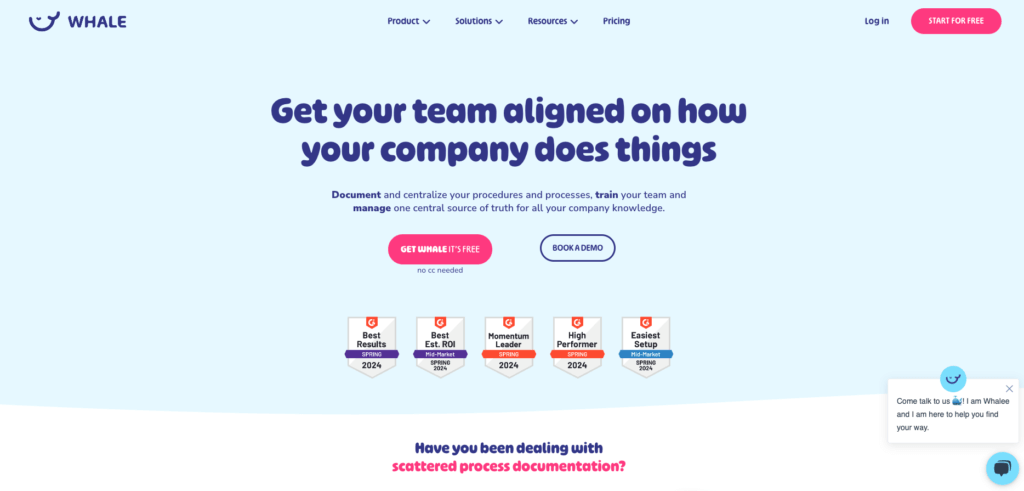
Whale is the ultimate AI-powered employee onboarding and training solution. This HR automation software is the fastest way to get your team aligned.
You can use Whale to deliver personalized onboarding and learning journeys to ensure your teams get the support they need, when they need it.
2. BambooHR - Best overall HR platform
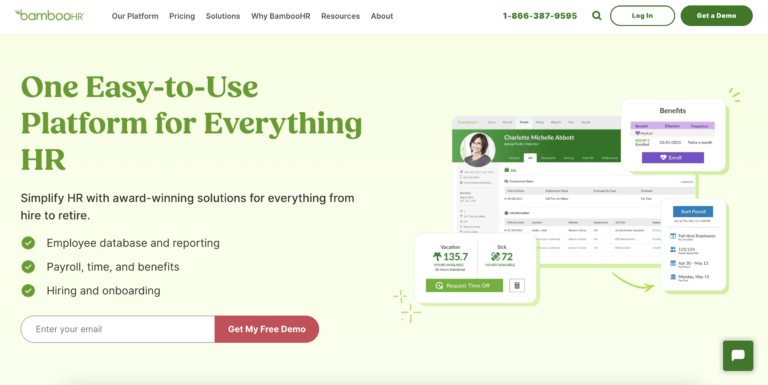
BambooHR has a user-friendly interface and offers comprehensive HR management solutions, including applicant tracking, onboarding, time-off tracking, and performance management. Its intuitive design makes it easy for HR professionals to navigate and use.
3. Workday - Best for uniting finance and HR
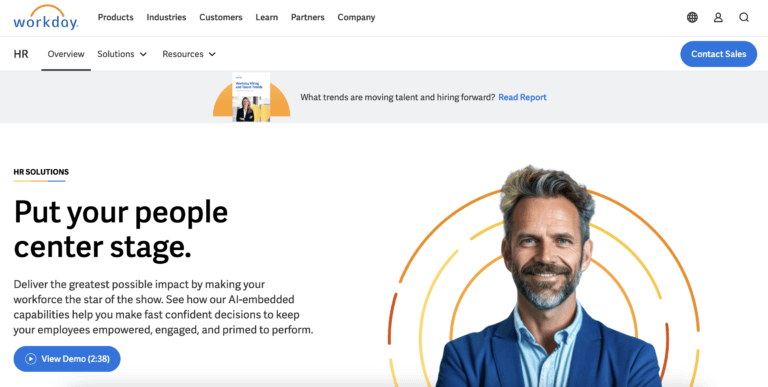
Workday is a robust tool for medium—to large enterprises. It covers HR management and payroll, talent management and analytics. As a tool, it provides a unified system that enhances strategic decision-making by integrating HR and financial data.
4. Zenefits (TriNet) - Best for managing employee payroll and benefits
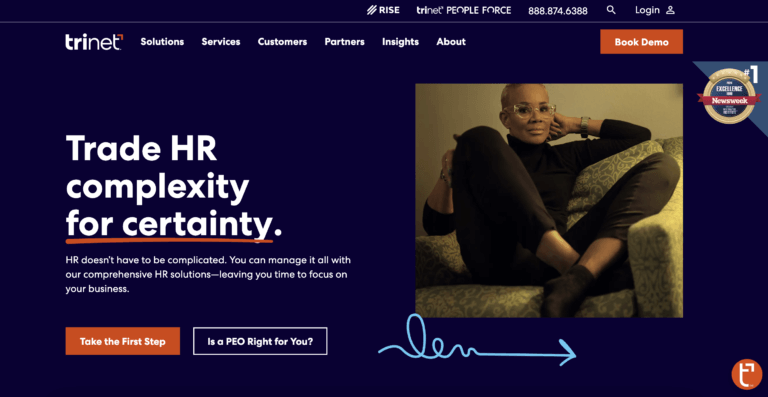
Formerly Zenefits, now TriNet, is for small to mid-sized businesses, integrating payroll, benefits, HR, and employee management into one platform. The platform helps with many HR automation best practices, including streamlining administrative tasks, allowing HR teams to focus more on their growth than people administration.
5. SAP SuccessFactors - Best for companies running on SAP
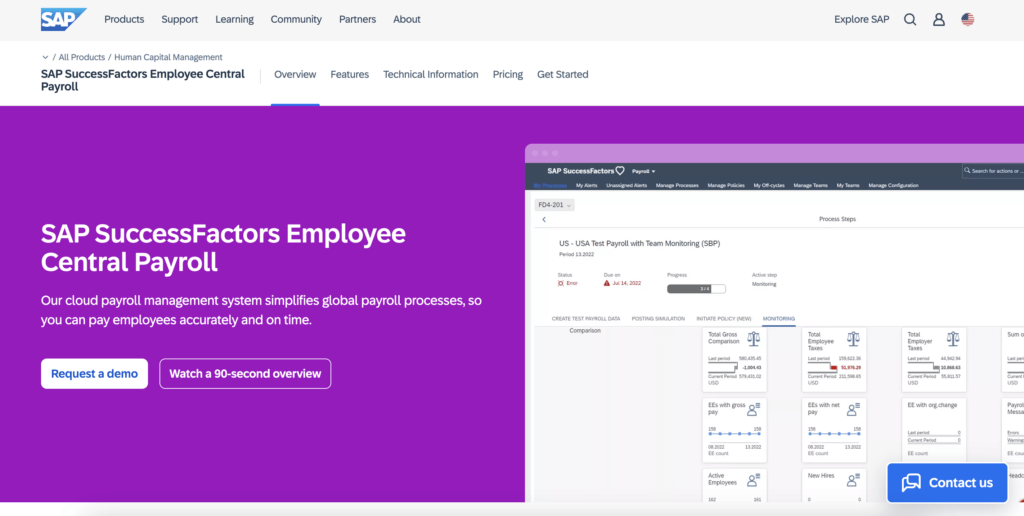
SAP Success Factors offers scalable automation of HR processes, including core HR, talent management, and workforce analytics. It integrates with other SAP systems, providing a cohesive experience for SAP-centric companies.
6. Namely - Best overall HR platform for medium-sized businesses
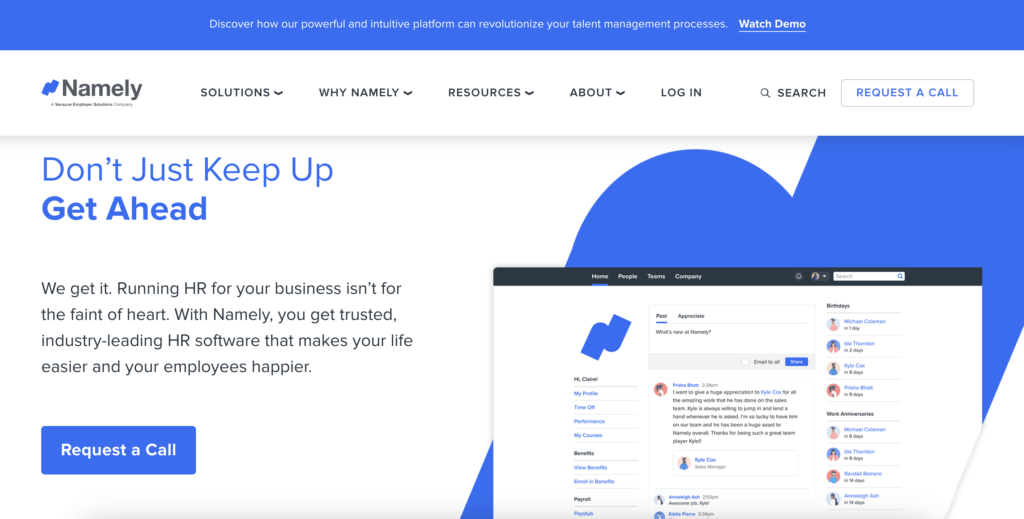
Namely focuses on mid-sized companies, providing a platform for HR management, payroll, and benefits. Namely’s dashboard and customizable workflows are designed to enhance HR productivity and employee engagement.
7. Rippling - Best for managing payroll, HR, IT & spend in one place
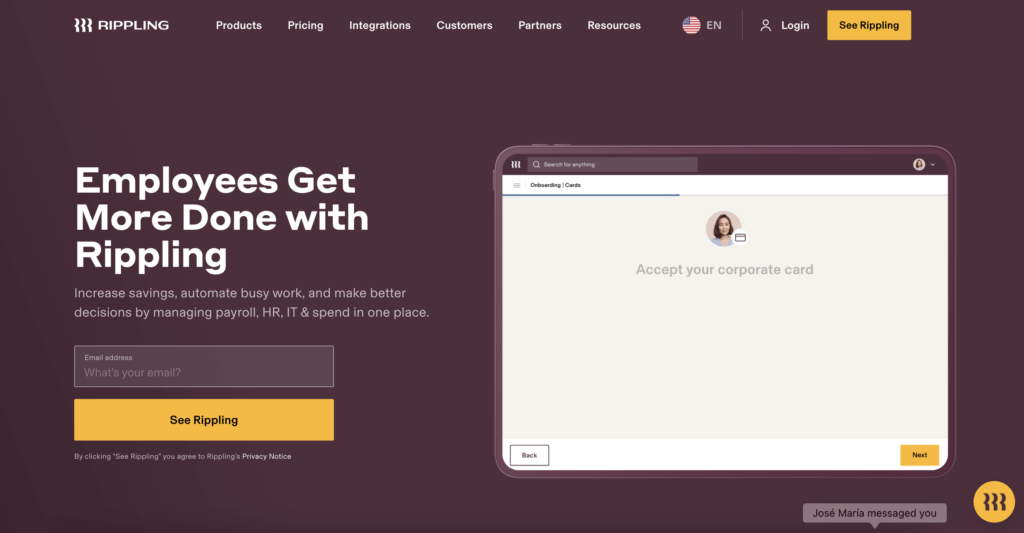
Rippling combines HR, IT, and finance, making it easy to manage employee data across different systems. The software automates administrative work, allowing businesses to focus on strategic initiatives.
8. Zoho People - Best for talent management and recruiting
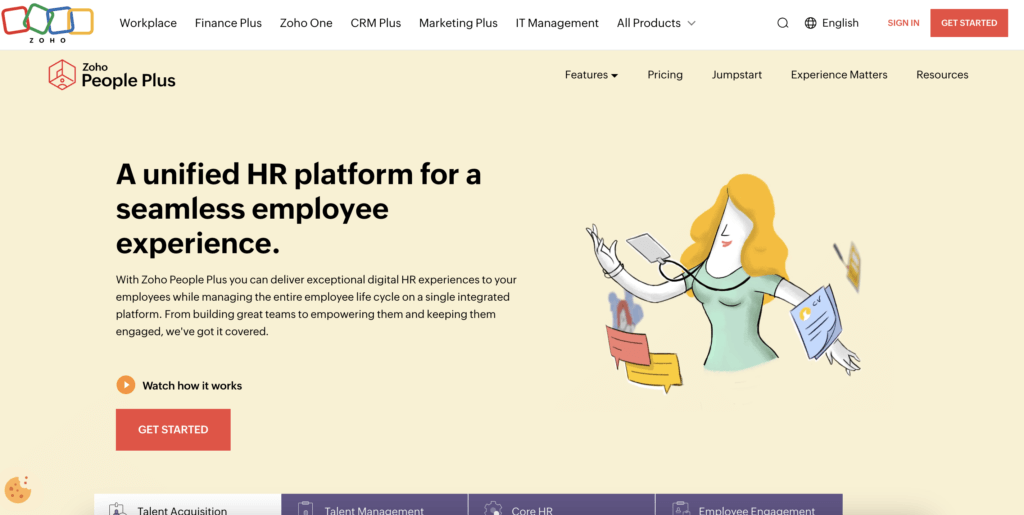
Zoho People is a cost-effective option for small businesses, offering HR management, time tracking, and employee self-service features. As a tool, it helps businesses streamline their processes with HR automation best practices and improve overall efficiency.
9. Deel - Best for remote teams
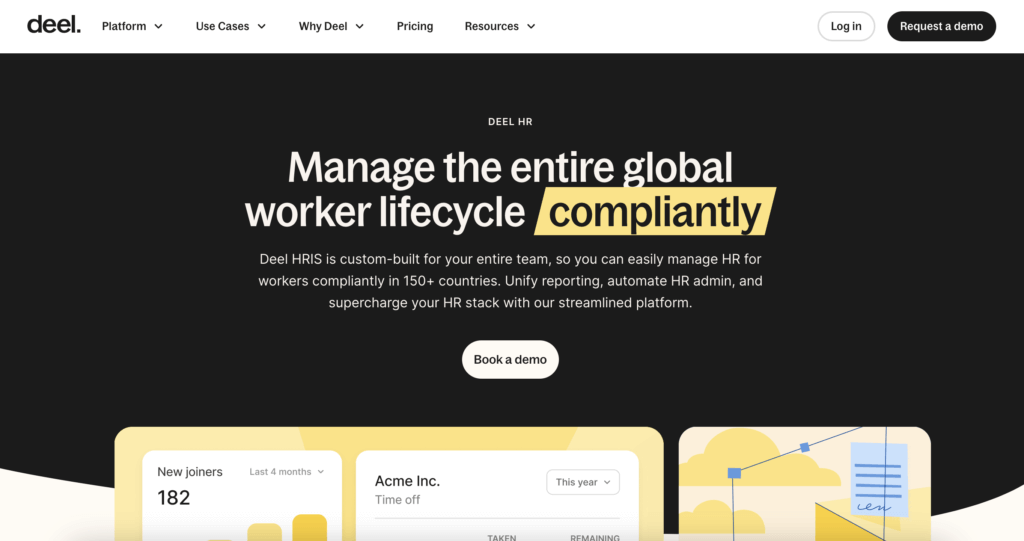
Deel suits companies looking to expand globally with speed, flexibility, and legal compliance. It is a platform that simplifies the way companies manage their global team: onboarding, payroll, offboarding, and everything in between.
10. Gusto - Best for US companies looking for an all-in-one solution
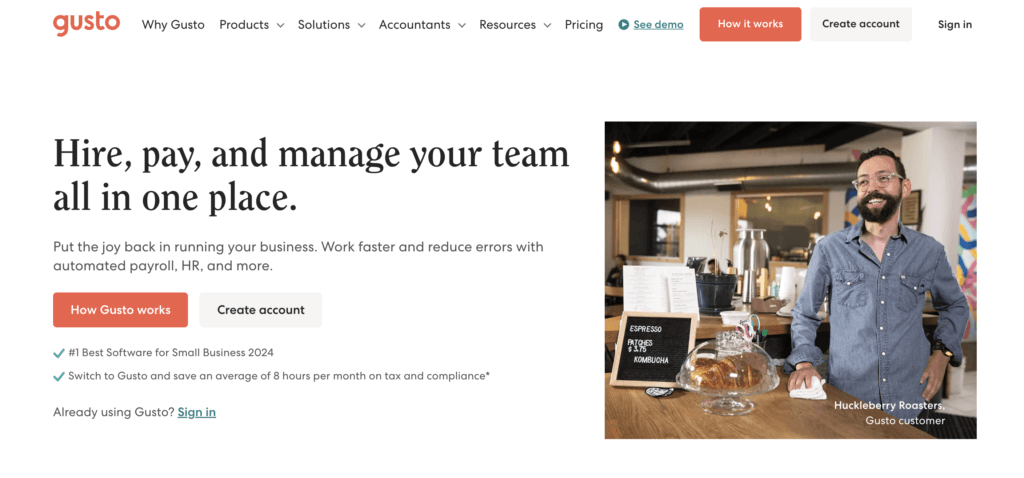
Launched in 2012 as ZenPayroll, Gusto serves more than 300,000 businesses nationwide. Each year Gusto processes tens of billions of dollars of payroll and provides employee benefits—like health insurance and 401(k) accounts.
11. ADP - Best for those looking for a payroll solution
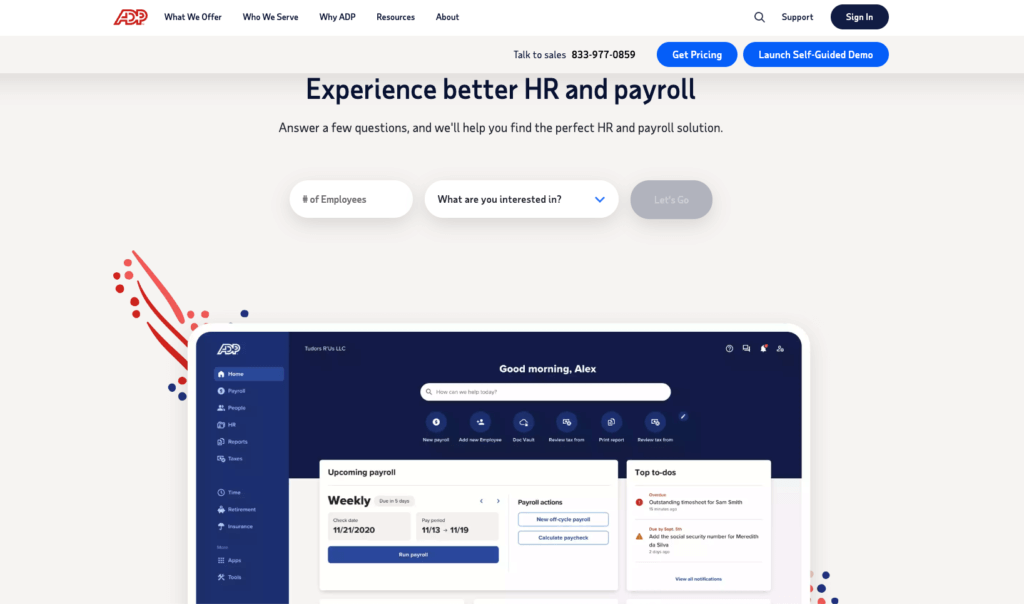
ADP offers robust payroll solutions tailored to businesses of all sizes. ADP’s comprehensive suite of HR services includes payroll processing, tax compliance, and employee benefits management, ensuring seamless payroll operations.

Best practices to choose the best HR automation software
- Identify your needs by determining which HR processes, such as payroll, recruitment, or performance management, require automation.
- Research various HR automation softwares and create a shortlist for demos.
- Consider scalability to ensure the tool can accommodate your company’s growth and increasing demands.
- Get everyone aligned by explaining the benefits of automation to all stakeholders and securing leadership’s commitment to providing necessary resources.
- Investigate necessary integrations to ensure the software works seamlessly with your existing systems, like accounting and CRM tools.
- Prioritize user-friendliness to choose an intuitive and easy-to-use solution that will be readily adopted by your HR team.
- Ensure there is reliable customer support available, looking for vendors that offer comprehensive support options.
- Consider the cost by comparing pricing models and evaluating any additional fees for add-ons or upgrades.
- Check for compliance features to ensure the software helps you stay compliant with local and international labor laws.
6 Best HR automation examples and AI use cases
Here’s a quick look at 6 use cases for HR automation software and also AI in HR:
- Employee onboarding: A solid onboarding program can cut new hire turnover by 50% in the first six months. Use onboarding software to support new hires and help managers create effective 30-60-90 day plans.
- Employee training: Connect with training management systems to automatically enroll new hires in essential programs. The right tools offer engaging, personalized learning experiences to set your team up for success.
- Paid time off: Managing leave requests can be a headache. Simplify the paid time off (or PTO) process with self-service portals that handle approvals, track paid time off, and manage cumulative leave across your business.
- Payroll: Automate your payroll with software that handles calculations, deductions, and tax computations effortlessly.
- Recruiting: By 2030, millennials will dominate the workforce. This tech-savvy generation values efficiency and automation. Choose tools that streamline and personalize recruitment, keeping candidates engaged throughout.
- Time management: Ditch the paper timesheets and manual calculations. Time tracking software will revolutionize your process for both consultants and HR teams. Embracing these HR automation examples will not only streamline your operations but also enhance employee satisfaction and productivity. However, it’s not all rosy…
Challenges in implementing automation and AI in HR
Implementing HR automation best practices comes with its challenges and considerations.
- Resistance to implementation
- Integration issues
- Lack of resources
- Expensive and complex IT support
Many HR professionals worry that AI and automation might make their roles obsolete, but as the HR automation examples above show, that’s a misconception. In reality, automation is here to enhance your work, not replace it. Its primary goal is to handle routine, repetitive tasks with consistency and efficiency, freeing you up to focus on what really matters: engaging with employees and providing valuable strategic insights to your business.
Rather than replacing HR professionals, automation and AI empower you to add more value in areas that technology can’t reach. Both allow you to concentrate on building strong employee relationships, fostering a positive workplace culture, and aligning HR strategies with business goals.
To encourage your team to get on board with technology they might be wary of, embrace change management practices. Engage relevant stakeholders throughout the process and ensure that your service providers offer the support you need. With the right approach, automation and AI in HR can be powerful allies.
Bottom line on AI in HR
76% of HR leaders believe not adopting AI soon will hinder organizational success, says Gartner’s report.
Automation in HR is no longer a luxury but a necessity for modern businesses aiming to stay competitive. By understanding HR automation, recognizing its benefits, exploring top tools, and knowing how to choose the best software, you can make an informed decision that will enhance your company’s efficiency and productivity, without threatening your team’s job security or efficacy.
Ultimately automation eliminates manual HR processes, and transforms the function of HR into real human capital management to provide real business value.
FAQs on HR Automation
What is the Role of AI and Machine Learning in HR
The integration of AI and ML into HR functions is revolutionizing the way HR functions. HR professionals can use ML and AI to automate time-consuming and repetitive HR tasks like interview scheduling, resume screening, and onboarding. This enables professionals to concentrate on higher-value tasks.
What are the disadvantages of HR automation?
Potential disadvantages of HR automation include resistance to change, loss of human touch, security/privacy risks, integration issues with existing systems, and the need for employee training.
If HR professionals only focus on tech and automation then they run the risk of losing touch with teams.
Can HR be replaced by AI?
AI can’t fully replace HR. While AI in HR can handle routine tasks like data entry and scheduling, it lacks the human touch needed for complex issues such as conflict resolution and employee engagement. HR professionals bring critical interpersonal skills and strategic thinking that AI can’t replicate.
How does AI in HR help decision-making?
AI in HR enhances decision-making by analyzing large data sets to uncover trends and insights. It streamlines recruitment, identifies skill gaps, and predicts employee turnover, enabling HR teams to make informed, data-driven decisions and improve overall efficiency.
